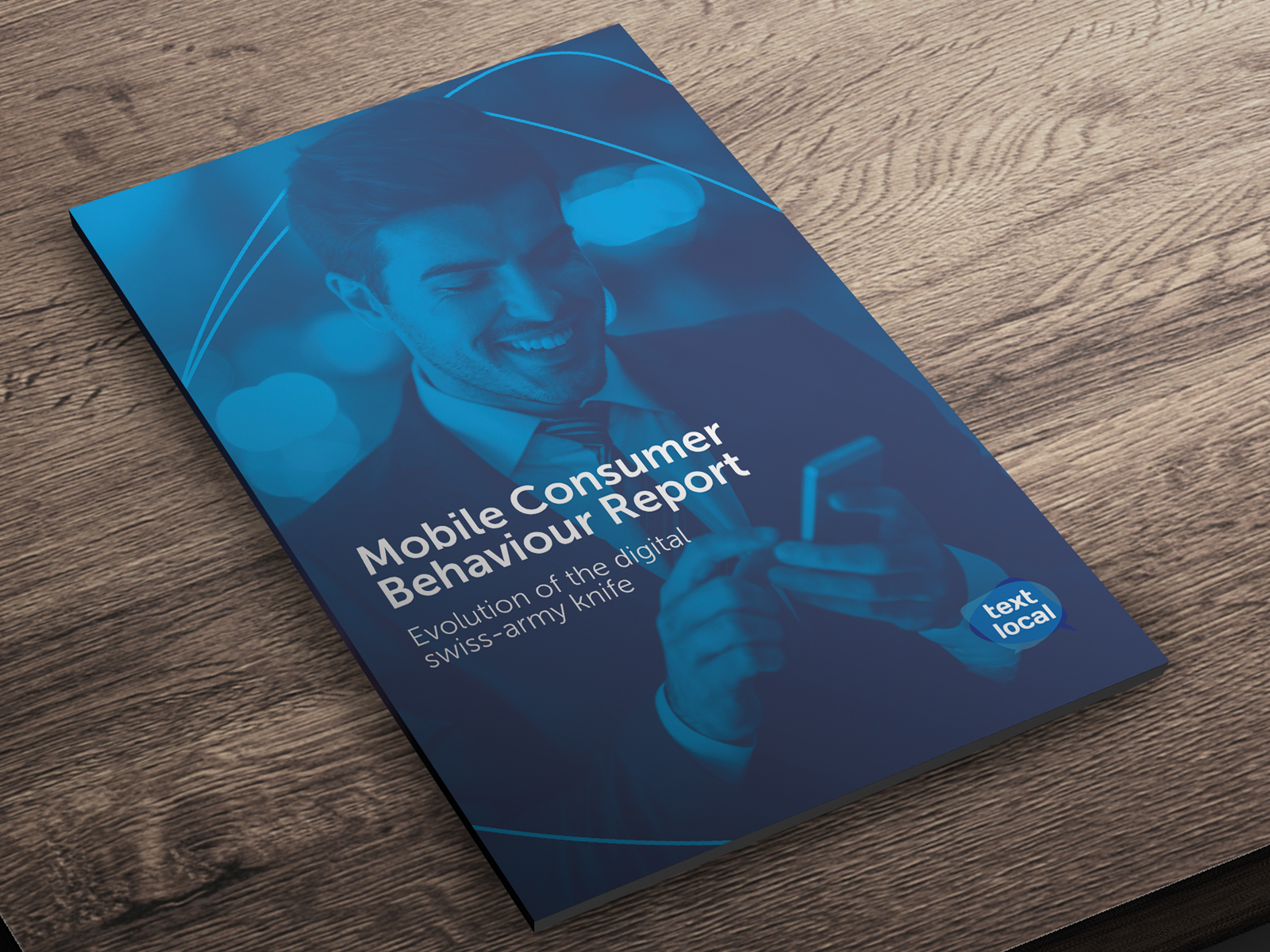The evolution of the digital swiss-army knife
- Monday, July 2nd, 2018
- Share this article:
The smartphone has had a profound impact on consumer behaviour, and marketers need to keep aware of how patterns and habits are shifting in order to stay effective. Of the back of the firms new research study, the Mobile Consumer Behaviour Report, Jason Palgrave-Jones, managing director at TextLocal, explores some of the findings, and what they mean for marketers.
 The evolution of mobile technology means we are living in a truly anytime, anywhere society. Our smartphone provides us with the access and opportunity to shop online, manage our finances, make bookings and essentially organise our everyday lives at a time and location that best suits our ever-busier schedules.
The evolution of mobile technology means we are living in a truly anytime, anywhere society. Our smartphone provides us with the access and opportunity to shop online, manage our finances, make bookings and essentially organise our everyday lives at a time and location that best suits our ever-busier schedules.
The evolution of the digital swiss-army knife
We are increasingly reliant on mobile technology with 85 per cent of consumers using a smartphone daily. We struggle to even wake up without the help of our smartphones; in fact, 56 per cent of us are woken by a device’s alarm. Our report also identified that our anytime, anywhere attitude towards smartphones extends into work time with 79 per cent of people responding to a personal message and 39 per cent browsing online.
Our devices provide us with the ability to complete purchases, transfers and transactions almost instantly meaning that businesses are tasked with the challenge of understanding and engaging with the mobile-first mindset of modern consumers, delivering a real-time value and customer-centric experience across all devices.
The influence of mobile technology
The impact of this reliance has been felt across a wide range of industries, retailers, in particular, have had to adapt their online offerings to accommodate the rise of mobile shopping or m-commerce.
Our research tellingly revealed that three-quarters of consumers use their phones to shop online, spending on average £433.41 on their device in 2017. The rise in m-commerce combined with the rapid adoption of mobile and contactless payments has revolutionised the way British consumers shop.
The increasing penetration of smartphones is being felt throughout the key sectors, with 89% of job seekers believing their smartphone is an essential tool for job hunting. The Report also identified that given our ability to place bets remotely, over 4m people are using their smartphones to gamble.
Smartphone Society
The research clearly highlights just how prevalent smartphone technology is across so many aspects of our lives, in fact, just over a third of smartphone users would describe themselves as addicted to checking their device.
With smartphone adoption forecast to reach 92 per cent of UK adults by 2023, the presence of mobile devices is only set to grow, meaning that effective mobile strategies are now essential for businesses looking to engage their customers.
The habitual use of smartphones means that the average user now checks their phone 10,000 times in a year, in fact, 34 per cent of respondents admitted to checking their smartphone in the middle of the night. The research undeniably demonstrates that mobile devices are the ideal way for businesses to engage with their customer base.
Despite the evolution of the smartphone’s many functions, the top two uses are interestingly still communication-based with making calls and sending SMS coming out on top. In fact, SMS was identified as the most popular messaging channel with over 92.2 per cent of users compared to 83 per cent of those using IM.
The Report also found that 21.6 per cent of people are texting throughout the day and a further 47 per cent are already receiving text messages from businesses, highlighting that consumers are already engaged with SMS and crucially are open to receiving brand based communications.
The importance of SMS as a channel for both business and personal use cannot be underestimated, the key to the success of text messaging is the ability consumers have to engage in real-time with the content.
The Report revealed that 74.5 per cent of people complete surveys on their phone, supporting the idea that a streamlined mobile customer journey increases engagement. Similarly, over 37 per cent of people have made a purchase as a direct result of receiving a message from a business, providing an even more powerful argument for the potential ROI possibilities of SMS.
Interestingly, of the 48 per cent of people who say they don’t currently receive SMS from businesses, 76 per cent have received delivery notifications and an additional 67 per cent have had appointment reminders. Suggesting that 48 per cent don’t perceive alerts and reminders as business based perhaps because they aren’t promotion or offer-centric.
What’s clear from the research is that although smartphones are more prevalent in our lives than ever, there are still vast opportunities to be had when it comes to business SMS.
With the ability to access services and businesses in real-time from almost any location, the way consumers and businesses communicate has fundamentally changed and SMS offers the ideal solution to seamless support mobile-first consumers.
Jason Palgrave-Jones is managing director of TextLocal. The Mobile Consumer Behaviour Report is available to download for free now.
















